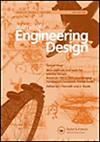A question answering system for assembly process of wind turbines based on multi-modal knowledge graph and large language model
IF 3.4
2区 工程技术
Q1 ENGINEERING, MULTIDISCIPLINARY
引用次数: 0
Abstract
AbstractIn the field of wind power generation, wind turbines serve as the foundation for harnessing electrical energy. However, the assembly process information for wind turbines is typically dispersed among various modalities such as 3D models, natural text, and images in the form of process documents. The difficulty in effectively utilising historical process knowledge hampers the efficiency of assembly process design and subsequently affects production efficiency. To address this issue, this paper constructs a Multi-modal Process Knowledge Graph for Wind Turbines, named MPKG-WT. Additionally, a wind turbine assembly process question-answering system combining multi-modal knowledge graphs with large language models (LLMs) is proposed to enable efficient utilisation of historical assembly process knowledge. The proposed approach achieves outstanding results when compared with other state-of-the-art KBQA methods and recent LLMs using a wind turbine assembly process dataset. The effectiveness of the approach is further validated through a visualised assembly process question-answering system. The research findings demonstrate a significant improvement in assembly process design efficiency.KEYWORDS: Multi-modal knowledge graphWind turbinesAssembly process knowledgeLarge language modelQuestion answering Disclosure statementNo potential conflict of interest was reported by the author(s).Additional informationFundingThis work was supported by National Key Research and Development Program of China: [grant no 2019YFB1706300]; Shanghai Rising-Star Plan (Yangfan Program) from the Science and Technology Commission of Shanghai Municipality: [grant no 22YF1400200].基于多模态知识图和大语言模型的风电机组装配过程问答系统
在风力发电领域,风力发电机是电能利用的基础。然而,风力涡轮机的装配工艺信息通常以工艺文件的形式分散在诸如3D模型、自然文本和图像等各种形式中。历史工艺知识难以有效利用,影响装配工艺设计的效率,进而影响生产效率。为了解决这一问题,本文构建了一个风电机组多模态过程知识图,命名为MPKG-WT。此外,提出了一种多模态知识图与大语言模型相结合的风电机组装配过程问答系统,实现了装配过程历史知识的高效利用。与其他最先进的KBQA方法和最近使用风力涡轮机装配过程数据集的llm相比,所提出的方法取得了出色的结果。通过可视化装配过程问答系统进一步验证了该方法的有效性。研究结果表明,装配工艺设计效率显著提高。关键词:多模态知识图风力涡轮机装配工艺知识大型语言模型问答披露声明作者未报告潜在的利益冲突。本研究得到国家重点研发计划资助:[批准号:2019YFB1706300];上海市科学技术委员会“上海新星计划”(杨帆计划)项目:[批准号:22YF1400200]。
本文章由计算机程序翻译,如有差异,请以英文原文为准。
求助全文
约1分钟内获得全文
求助全文
来源期刊

Journal of Engineering Design
工程技术-工程:综合
CiteScore
5.00
自引率
33.30%
发文量
18
审稿时长
4.5 months
期刊介绍:
The Journal of Engineering Design is a leading international publication that provides an essential forum for dialogue on important issues across all disciplines and aspects of the design of engineered products and systems. The Journal publishes pioneering, contemporary, best industrial practice as well as authoritative research, studies and review papers on the underlying principles of design, its management, practice, techniques and methodologies, rather than specific domain applications.
We welcome papers that examine the following topics:
Engineering design aesthetics, style and form-
Big data analytics in engineering design-
Collaborative design in engineering-
Engineering concept design-
Creativity and innovation in engineering-
Engineering design architectures-
Design costing in engineering
Design education and pedagogy in engineering-
Engineering design for X, e.g. manufacturability, assembly, environment, sustainability-
Engineering design management-
Design risk and uncertainty in engineering-
Engineering design theory and methodology-
Designing product platforms, modularity and reuse in engineering-
Emotive design, e.g. Kansei engineering-
Ergonomics, styling and the design process-
Evolutionary design activity in engineering (product improvement & refinement)-
Global and distributed engineering design-
Inclusive design and assistive engineering technology-
Engineering industrial design and total design-
Integrated engineering design development-
Knowledge and information management in engineering-
Engineering maintainability, sustainability, safety and standards-
Multi, inter and trans disciplinary engineering design-
New engineering product design and development-
Engineering product introduction process[...]
 求助内容:
求助内容: 应助结果提醒方式:
应助结果提醒方式:


